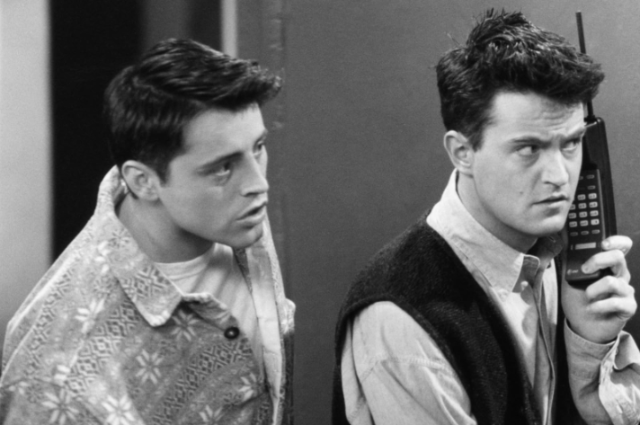As the familiar orange couch in Central Perk witnessed its last coffee-fuelled conversations, the atmosphere among the friends was bittersweet. Ross and Rachel had finally found their way back to each other, Monica and Chandler were adjusting to the joys and challenges of parenthood, and Joey, ever the lovable bachelor, had managed to find a balance between his acting career and genuine connections.
In this alternative ending to "Friends," as the gang bid farewell to their iconic apartments and the city that had been the backdrop to a decade of laughter and love, an unexpected twist unfolded. A mysterious antique in Monica and Chandler's apartment, a relic from an old tenant, transported them into a time portal.
Suddenly, the friends found themselves back in the '90s, right at the beginning of their journey. The catch? They retained all the knowledge and experiences of their future selves. The sitcom magic blended seamlessly with a touch of sci-fi as the gang navigated the challenges of reliving their lives, armed with the wisdom of the years they had already spent together.
Creativity and wit fuelled their interactions. Chandler, aware of every sarcastic comment before it left his lips, found himself in a constant battle not to spill the beans about the future. Ross, with a twinkle in his eye, would drop hints about the "we were on a break" saga, leaving his younger self utterly bewildered.
As the narrative unfolded, the friends discovered that while they couldn't change major life events, their insights led to a ripple effect of small, meaningful alterations. Joey, instead of fumbling through his auditions, offered genuinely heartfelt advice to his younger self, setting him on a path to acting success sooner.
This alternative ending sparked conversations about the cyclical nature of life and the significance of the journey. It invites viewers to reflect on how the past shapes the present and the future, and whether knowing what lies ahead truly changes the course of one's life.
In the closing moments, the friends found themselves back in the present, the mysterious antique fading into the background. As they looked at each other with a mix of nostalgia and gratitude, Ross, summing up the collective sentiment, said, "Maybe lives like a sitcom, you can't control the reruns, but you can definitely enjoy the laughs."
This alternative ending to "Friends" not only celebrated the timeless bond among the characters but also added a layer of philosophical reflection, reminding viewers that, in the grand scheme of life, each moment is a part of a much larger narrative—a narrative that, much like a sitcom, is a beautiful blend of humour, love, and the unexpected.

